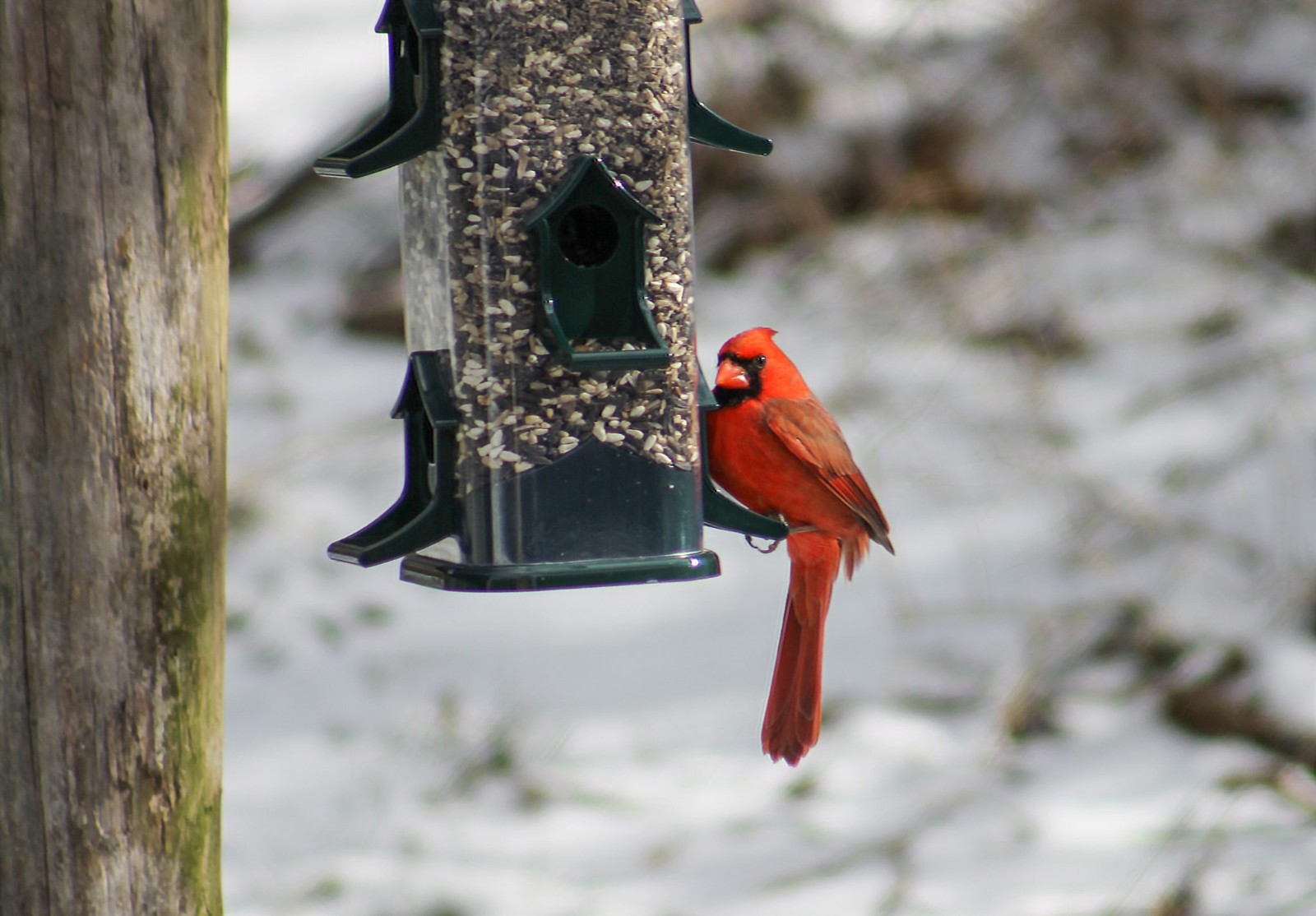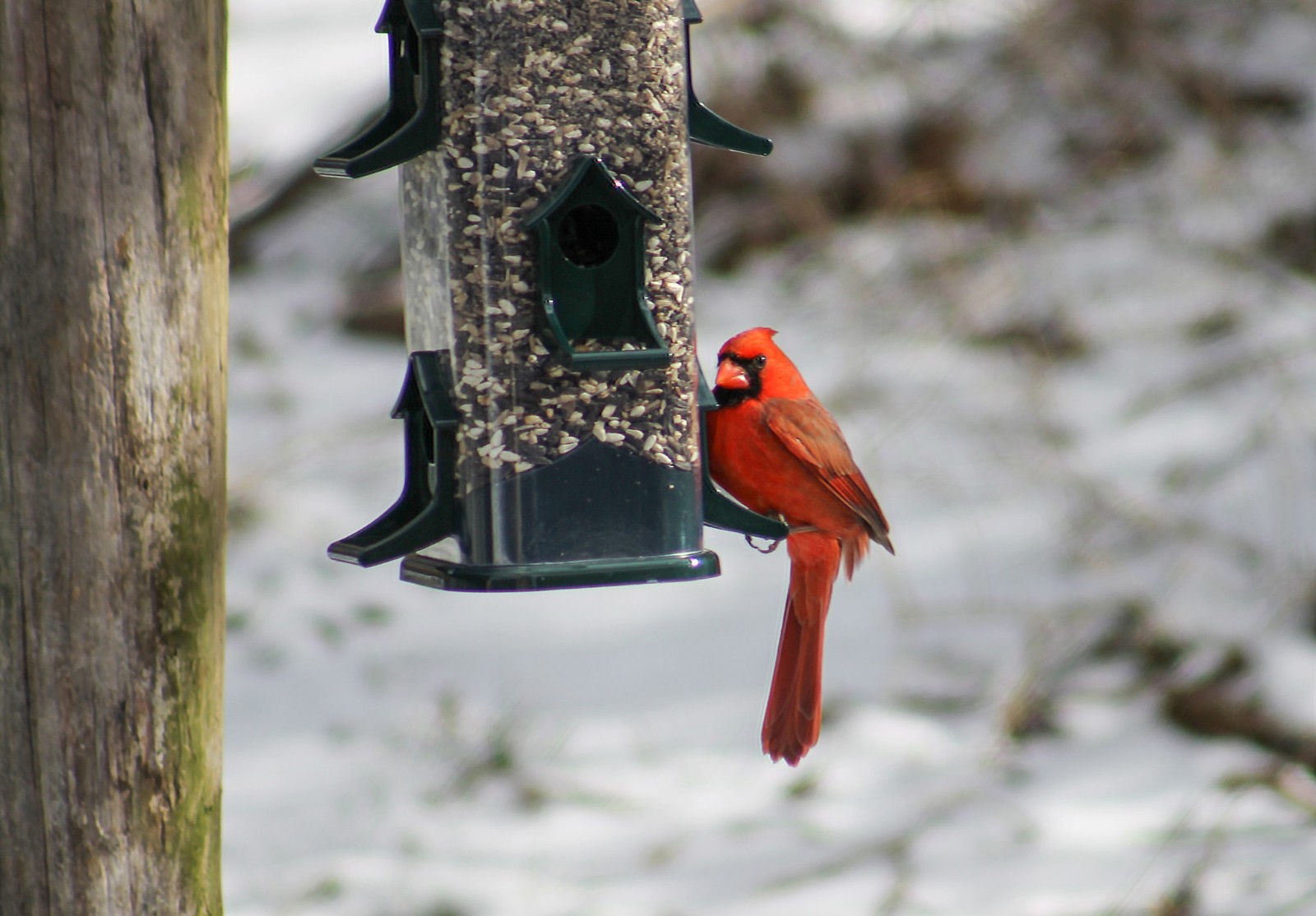
Bird Feeder Basics
Craving a little company to help pass the long winter days? A good idea to safely have visitors is to put up a bird feeder outside your home and enjoy daily visits by feathered friends such as finches, chickadees, cardinals, blue jays, woodpeckers and more.
Having a bird feeder is good for your mental health
Studies, including research conducted in 2017 by the University of Exeter, the British Trust for Ornithology (the study of birds) and the University of Queensland, have confirmed what many have known for years…that watching birds can lower the risk of anxiety, stress and depression.
Watching birds also encourages mindfulness. Birds won’t stay long at your feeder if you’re being loud or moving around. To watch birds, you must be quiet, still, and focused, and when you are, you’ll feel more relaxed and meditative. Who couldn’t use that these days?
Birds appreciate being fed in the winter
During the winter months, birds endure extreme temperature changes. On top of this, the foods they have access to during the warmer months of the year (berries and insects) are not plentiful or available at all.
By hanging a stocked-up bird feeder in your backyard, you’re helping birds supplement their natural food sources, which helps give them the food and energy to survive and thrive against old man winter.
What kind of bird feeder should you get?
When you go shopping for a bird feeder, there are a few general things to keep in mind. Make sure that it’s sturdy enough to withstand winter winds, covered and tight enough to keep birdseed dry, and most importantly, squirrel-proof. Squirrels are the racoons of the bird feeder world.
If you buy a bird feeder that isn’t squirrel-proof, you’re wasting your time. Your vision of sitting peacefully by your window and slipping into a Zen-like state while observing finches and chickadees at your feeder will be shattered. In a matter of minutes, squirrels can devour all the seeds you put out.
Another tip to keep in mind is that a bigger bird feeder isn’t necessarily better. During the winter, it can be snowing one day and raining the next. When birdseed gets wet, and it’s unable to dry, it can grow mold or fungus or become diseased.
One way to prevent birdseed from becoming compromised is to not completely fill a large bird feeder. Only put in enough feed for 3-4 days (i.e. 1/3rds to 2/3rds full). Of course, if you buy a smaller bird feeder to begin with, you don’t have to worry about this.
Where to place your bird feeder
To help attract birds to your feeder during the wintertime, you should ideally place it in an area that is sheltered from the wind. If you have a cat that goes out in the wintertime, make sure your bird feeder is near a hedge or tree so the birds can make a quick escape instead of becoming the next meal for your feline fatale.
Lastly, to prevent birds from colliding into your window, place your bird feeder no closer than five feet away from your window. This will prevent birds from building up the momentum that can lead to a fatal collision due to confusing reflections in the window’s glass.
What kind of birdseed?
Like most things, not all birdseed is created equal. Higher-quality birdseed will contain a greater proportion of black-oil sunflower seeds and millet seeds. Black-oil sunflower seeds are high in fat so they provide a lot of energy. In addition, they are thin-shelled, so they’re easy for small birds to crack open.
Millet seeds are full of nutrients that birds need so their skeletal system, muscles, heart, digestive system, beak and feathers stay healthy.
Birds aren’t the only ones who benefit from higher-quality birdseed. You will too because higher-quality food will attract a greater variety of birds to your feeder. How can you tell high-quality birdseed from low-quality birdseed? Low-quality bird-seed will have more filler in it such as milo, cracked corn, wheat and oats.
If you can’t find high-quality birdseed at your neighbourhood hardware store or grocery store, you’ll have to fly over to a local wild bird store like Wild Birds Unlimited in the GTA.
Treat your visitors every once in a while
As mentioned earlier in this article, when it’s cold outside, food with high fat or oil content helps supply the energy that birds need to survive the frigid days of winter. So don’t be shy about treating your backyard visitors to high fat and oil ‘super foods’ like a dab of peanut butter or a suet cake every once in a while.

